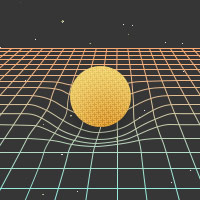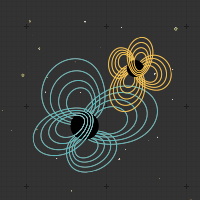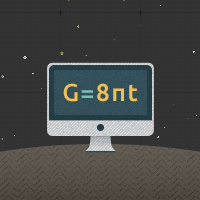SXS FAQ
-
Have we ever detected a gravitational wave?
Yes! On September 14, 2015, LIGO directly detected gravitational waves for the first time in history. You can read more about that event here. Since then, there have been several other signals that have been detected — either as confirmed gravitational-wave events or possible events without quite enough evidence to be sure that they weren't just noise. Astronomers hope to learn more interesting facts about our universe from future direct detections.
Before that, though, gravitational waves had only been detected indirectly. The 1993 Nobel Prize in physics was awarded to Russell A. Hulse and Joseph H. Taylor, Jr., for their observation of a binary pulsar, which lost energy in exactly the way that we expect gravitational waves would carry energy away.




